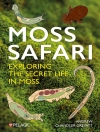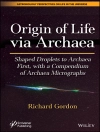This book discusses the organ-specific systemic manifestations of COVID-19. The initial chapters of the book review the origin and evolution of the coronaviruses, followed by pathogenesis and immune response during COVID-19 infection. The book also provides insight into the role of angiotensin-converting enzyme 2 in the onset of severe acute respiratory syndrome coronavirus 2 (SARS-Co V-2) pathogenesis. It summarizes the neurological aspects of SARS-Co V2, including transmission pathways, mechanisms of invasion into the nervous system, and mechanisms of neurological disease. It also delineates the association of severe disease with high blood plasma levels of inflammatory cytokines and inflammatory markers in SARS-Co V-2 infection. Lastly, it discusses the perturbation of gut microbiota by SARS-Co V-2 and uncovers the potential risk of virus infection on reproductive health.
Содержание
Chapter1: Corona Viruses: Emergence, Evolution, and Recurrence.- Chapter 2: Testing Strategy of Covid-19: a Mechanistic Approach.- Chapter 3: the Broad Impact of Infectious Disease Epidemics on Human Civilization: a Public Health Perspective.- Chapter 4: Human Impacts on Natural Habitats Leading to Covid-19 Pandemic.- Chapter 5: Transmission of Sars-cov2 and Strategies for Control of Infection – Lessons Learnt.- Chapter 6: Pathogenesis of Covid-19 Infection.- Chapter 7: Pathology of Covid-19 Infection.- Chapter 8: Covid-19: Clinical Spectrum – It’s Multiorgan Syndrome.- Chapter 9: Organ Involvement in Covid 19: Lung and Beyond.- Chapter 10: Covid-19 and Mucormycosis.- Chapter 11: Rhino-orbito-cerebral Mucormycosis-the Bane of the ‘black Fungus’.- Chapter 12: Strokes, Neurological and Neuropsychiatric Disorders in Covid-19.- Chapter 13: Insights Into Role of Angiotensin-converting Enzyme 2 in the Onset of Severe Acute Respiratory Syndrome Coronavirus 2 Pathogenesis.- Chapter 14: Immunology and Pathogenesis of Covid-19.- Chapter 15: Mrna Vaccine: an Advanced and Transformative Technology for Vaccine Development.- Chapter 16: Dampening of Inflammatory Makers and Understanding Covid 19 Viral Disease Development: a Combinattorial Approach.- Chapter 17: Covid-19: New Use of Therapeutics.- Chapter 18: Pharmacological Agents Targeting Coagulopathy in Covid-19: a Review.- Chapter 19: Gut Microbiome in Covid 19: New Insights’.- Chapter 20: Covid-19 Pandemic and Mental Illness: Impact of Gut-microbiota.- Chapter 21: the Psychological Impact of Covid-19.- Chapter 22: Potential Influence of Parasitic Interactions on Covid-19 Pathology and Epidemiology.- Chapter 23: Plausible Impacts of Sars-cov-2 on Human Reproductive System.- Chapter 24: an Insight Into Association Between Covid-19 Infection and Abo Blood Group.- Chapter 25: Herbal Formulations for the Treatment of Covid-19.- Chapter 26: Covid-19, Nutrition, Immunity and Diet.- Chapter 27: Challenges Faced in Treating Covid-patients and Lessons Learnt.- Chapter 28: Fears, Challenges and Opportunities During Covid 19: a Frontliner’s Perspective in Health Care System.
Об авторе
Professor R. C. Sobti is an Emeritus Professor and Indian National Science Academy (INSA) senior scientist at Punjab University. He is a former of Vice-Chancellor Panjab University, Chandigarh & Babasaheb Bhimrao Ambedkar University (Central University), Lucknow. He started his career as a cytogeneticist and subsequently used modern technologies of molecular biology, like genomics for understanding the susceptibility and disease process of cancer, COPD, AIDS metabolic syndrome, and kidney diseases. He has also used stem cells and nanoparticles to understand the process of tissue organ development through a designed de-cellularization protocol. He has published more than 300 papers in the journals of international repute and has also published more than 40 books.
He is a Fellow of the Third World Academy of Sciences, National Academy of Sciences India, Indian National Science Academy, National Academy of Medical Sciences, National Academy of Agricultural Sciences, Canadian Academy of Cardiovascular Diseases, and few others. He was the General President of the Indian Science Congress for the 102nd session held at the University of Jammu in 2013. Dr. Sobti is the recipient of many prestigious awards like the INSA Young Scientist Medal, UGC Career Award, Punjab Rattan Award, JC Bose Oration, and Sriram Oration Awards, and of Life Time Achievement Awards of the Punjab Academy of Sciences, Zoological Society of India, and the Environment Academy of India.
Dr. Naranjan S. Dhalla is a Principal Investigator at Experimental Cardiology, Institute of Cardiovascular Sciences; Distinguished Professor at Max Rady College of Medicine; Professor of Physiology and Pathophysiology, University of Manitoba. He has received more than 170 honors and awards from all over the world, including Order of Canada, Order of Manitoba, Order of the Buffalo Hunt from the Province of Manitoba, Fellowship in the Royal Society of Canada, Medal of Honour of the Canadian Medical Association, Research Achievement Award of the Canadian Cardiovascular Society, Chair in Cardiovascular Research and Honorary Professorship at different Universities. Dr. Dhalla was elected 2nd Greatest Manitoban of All Time and was featured in “Greatest Manitobans, ” a book published by the Winnipeg Free Press. He has published several research articles and chapters.
Dr. Masatoshi Watanabe currently works at the Graduate School of Medicine, Mie University. Earlier, he was a professor at the Graduate School of Engineering, Yokohama National University (2003-2017), and also a guest professor at the School of Medicine, Yokohama City University (2011-1017). He has published more than 130 research articles. He is a member and councillor in the Japanese Society of Pathology, and in the Japanese Cancer Association.
Dr. Aastha Sobti is currently working at the Department of Immunotechnology, Lund University, Lund, Sweden, under the Can Faster, Marie Skłodowska-Curie COFUND program. She has a background in dental sciences and did a specialization in a master’s in Clinical Dentistry (Oral surgery) from Eastman College, UCL, London. Her core interests are head and neck cancer-based clinical research in its entirety, aiding in the field to bring reforms required in the present multifarious surgical and translational research areas. She has teaching and research experience of about 8 years and published a few papers in international journals of repute. She is a recipient of several prizes and medals for her exceptional work, namely the academic certificate of excellence from BAOS, UK and IADR Hatton award (India). Additionally, she has attended and presented papers in international conferences in Hong Kong, Croatia, Brazil, Sweden, UK, Japan, and other countries.












